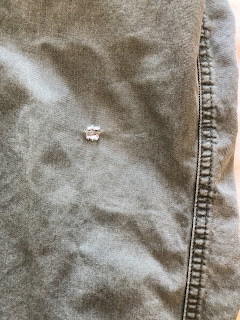Martina Evans reviewed four poets in last Saturday's Irish Times Magazine.
She begins with Tipperary native Eleanor Hooker's Of Ochre and Ash, quoting from "When you dream of the dead":
Dad's by the hearth, encouraging ash back to life.
I've never lived in a house that held its heat I tell him,
unable to say I miss you in case he recollects
his death. Somewhere in the house
a child is crying. Find her, he says.
There's an awful lot in those six lines. The enigmas of ordinary Irish rural speech, its mind-challenging indirectness; what's not said; a flavour of Isabel Allende's novel The House of the Spirits; pathos; a simplicity which is not the same thing as directness (Martina Evans speaks of Hooker's 'deceptively plain writing.')
There's one guy and three gals. The guy is Raymond Antrobus and his collection is called All the Names Given.
My mother said my father had a heartless sense of humour.
That winter she fell, ice on the road...
He watched from the kerb – boozy red-eyed Dad –
laughed when she said he had a heartless sense of humour,
I think that's how he handled pain.
("Heartless Humour Blues")
This is not as full as Hooker's lines, but I like the repetition of the heartless sense of humour, and the swift character sketch of Dad, with the pinprick epiphany of the last line.
In The Sun Is Open, Gail McConnell grieves for the loss of her father, shot in front of his wife and children, a sectarian execution of 1984:
night and day he made and trees
and peas and wendy houses
tricycles sunglasses that go snap
let there be lights let lights appear
Finally, Parwana Faraz in "Forty Names", the title poem of her book, "tells the story of 40 young women shot in a cave. We know their names but not why they died, grief is expressed in their naming and the cinematic vision of that mountain place, their dresses animated, a herd of colours".
Faraz speaks of her mother who, on being exiled, 'carried her box of sewing needles and her butterfly sewing machine made in the USSR'. She advised her daughter to be 'a woman with an idea and a wallet."
© Ciaran O'Driscoll 2021



